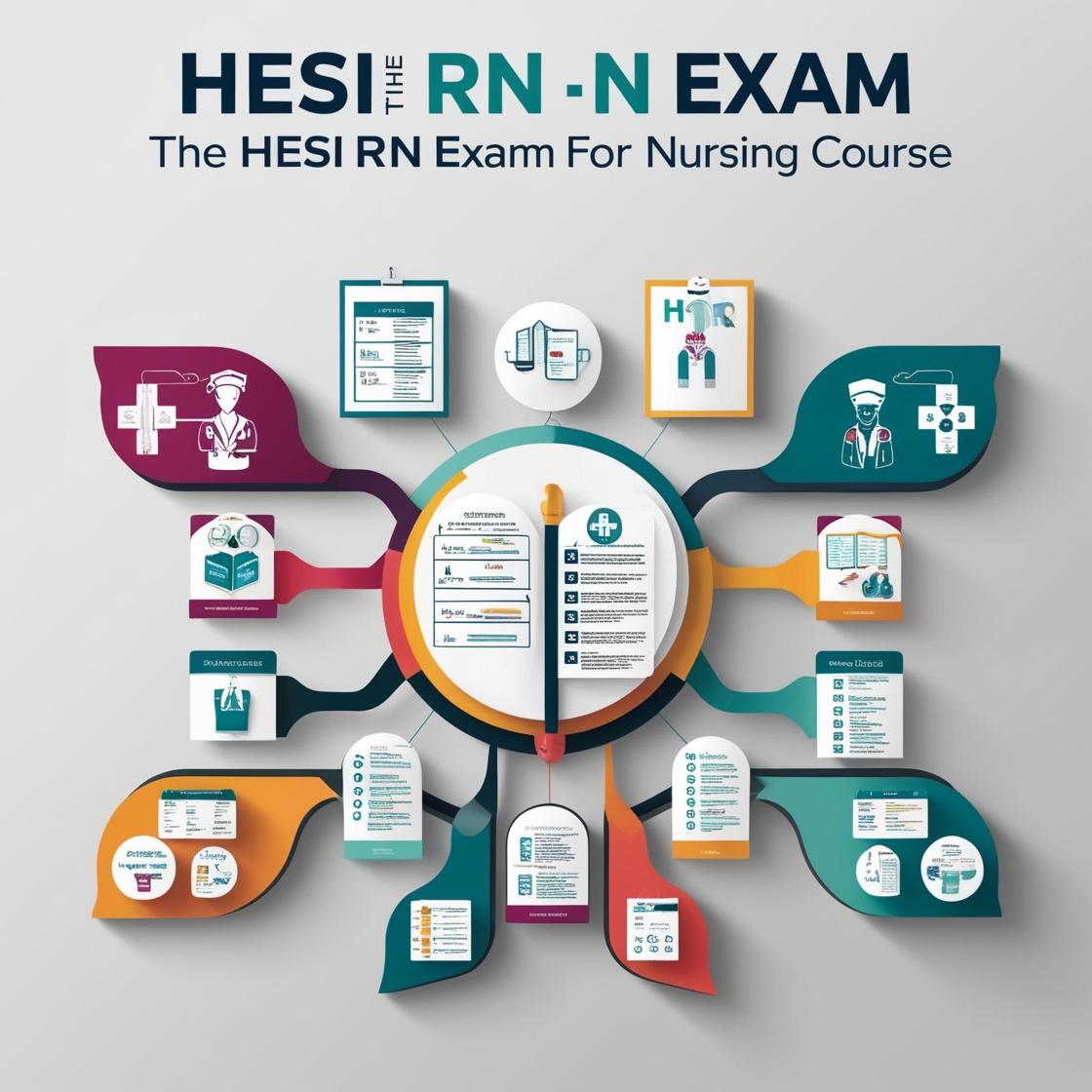HESI RN
HESI Fundamentals Practice Exam
1. While instructing a male client's wife in the performance of passive range-of-motion exercises to his contracted shoulder, the nurse observes that she is holding his arm above and below the elbow. What nursing action should the nurse implement?
- A. Acknowledge that she is supporting the arm correctly.
- B. Encourage her to keep the joint uncovered to maintain warmth.
- C. Reinforce the need to grip directly under the joint for better support.
- D. Instruct her to grip directly over the joint for better motion.
Correct answer: A
Rationale: The wife is correctly performing the passive range-of-motion exercises by holding the arm above and below the elbow. The nurse should acknowledge this correct technique (A). It is essential to keep the joint uncovered (B) during exercises, while ensuring the rest of the body remains covered for warmth and privacy. Choices (C) and (D) do not provide optimal support to the joint for effective movement.
2. What information should the nurse offer a client who uses herbal therapies to supplement their diet and manage common ailments about the general use of herbal supplements?
- A. Most herbs are toxic or carcinogenic and should only be used when proven effective.
- B. There is no evidence that herbs are safe or effective compared to conventional supplements in maintaining health.
- C. Herbs should be obtained from manufacturers with a history of quality control for their supplements.
- D. Herbal therapies may mask the symptoms of serious diseases, requiring frequent medical evaluations during use.
Correct answer: C
Rationale: It is essential for clients using herbal therapies to obtain herbs from manufacturers with a history of quality control for their supplements. This recommendation is crucial because quality control processes help in maintaining the purity and effectiveness of the herbal supplements. Option A is incorrect as it provides a negative and inaccurate generalization about herbs. Option B is also incorrect as there is existing evidence on the safety and efficacy of certain herbal supplements. Option D is not the most relevant information to offer initially to a client seeking advice on the general use of herbal supplements.
3. A client is admitted with a fever of unknown origin. To assess fever patterns, which intervention should the nurse implement?
- A. Document the client’s temperature fluctuations
- B. Assess for flushed, warm skin consistently
- C. Measure temperature at regular intervals
- D. Use different sites for temperature measurement
Correct answer: C
Rationale: To assess fever patterns accurately, the nurse should measure the client’s temperature at regular intervals. This approach helps in identifying the pattern of fever spikes and fluctuations, which can provide valuable information for diagnostic and treatment purposes. Assessing for flushed, warm skin or documenting circadian rhythms may not directly reveal the fever pattern, while varying temperature measurement sites could lead to inconsistent readings. Therefore, measuring temperature at regular intervals is the most appropriate intervention to identify fever patterns in this scenario.
4. Which assessment data indicates the need for the nurse to include the problem 'Risk for falls' in a client’s plan of care?
- A. Recent serum hemoglobin level of 16 g/dL
- B. Opioid analgesic received one hour ago
- C. Stooped posture with an unsteady gait
- D. Expressed feelings of depression
Correct answer: B
Rationale: The correct answer is B. The administration of opioid analgesics can impair balance and increase the risk of falls, justifying the inclusion of 'Risk for falls' in the client’s care plan. Choice A, a recent serum hemoglobin level of 16 g/dL, is not directly related to the risk of falls. Choice C, stooped posture with an unsteady gait, may indicate a risk for falls, but the direct influence of opioid analgesics on balance is more immediate. Choice D, expressed feelings of depression, while important, is not a direct indicator of the immediate risk for falls associated with opioid analgesic use.
5. After abdominal surgery, an adult is now alert and oriented. What position is most appropriate for the client?
- A. Semi-Fowler's
- B. Prone
- C. Supine
- D. Sim's
Correct answer: A
Rationale: The most appropriate position for a client following abdominal surgery is Semi-Fowler's. This position promotes greater thoracic expansion and reduces pressure on the suture line, aiding in respiratory function and preventing strain on the incision site. Choices B, C, and D are incorrect. Prone position (Choice B) would not be suitable after abdominal surgery as it can put pressure on the abdomen. Supine position (Choice C) may cause discomfort and strain on the incision area. Sim's position (Choice D) is primarily used for rectal exams and enemas, which are unrelated to the needs post-abdominal surgery.
Similar Questions

Access More Features
HESI RN Basic
$69.99/ 30 days
- 50,000 Questions with answers
- All HESI courses Coverage
- 30 days access @ $69.99
HESI RN Premium
$149.99/ 90 days
- 50,000 Questions with answers
- All HESI courses Coverage
- 30 days access @ $149.99
